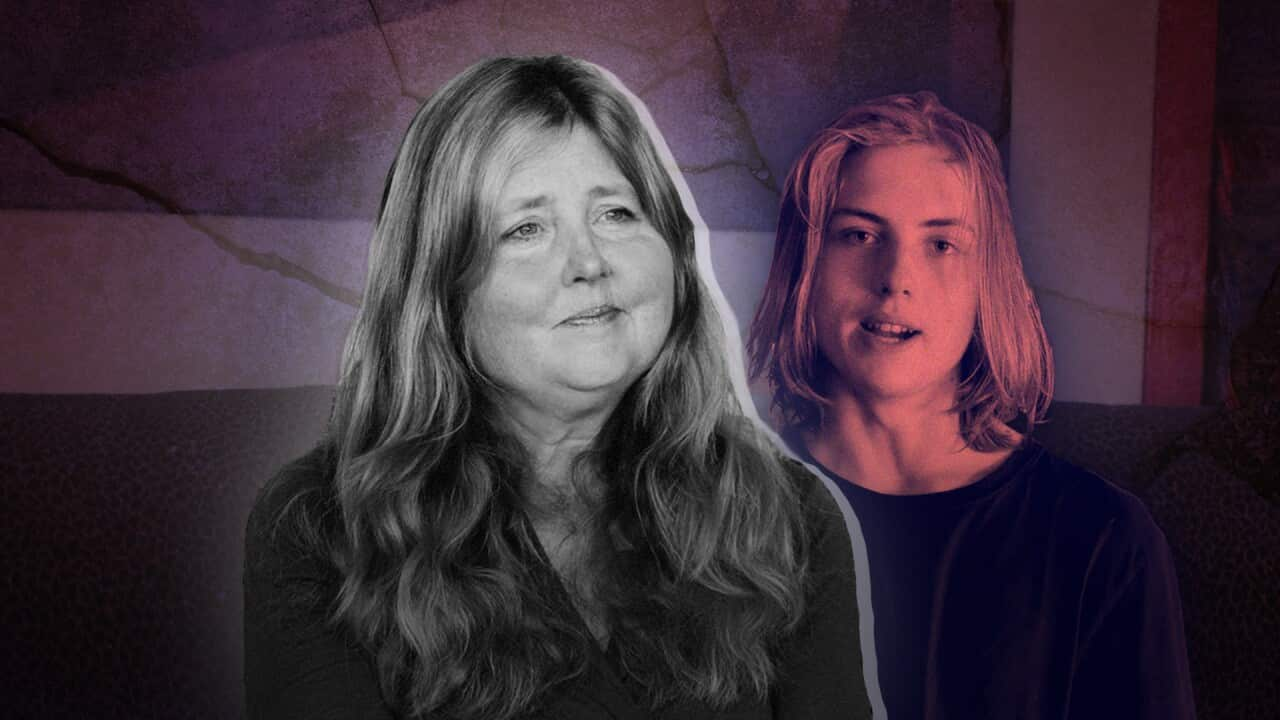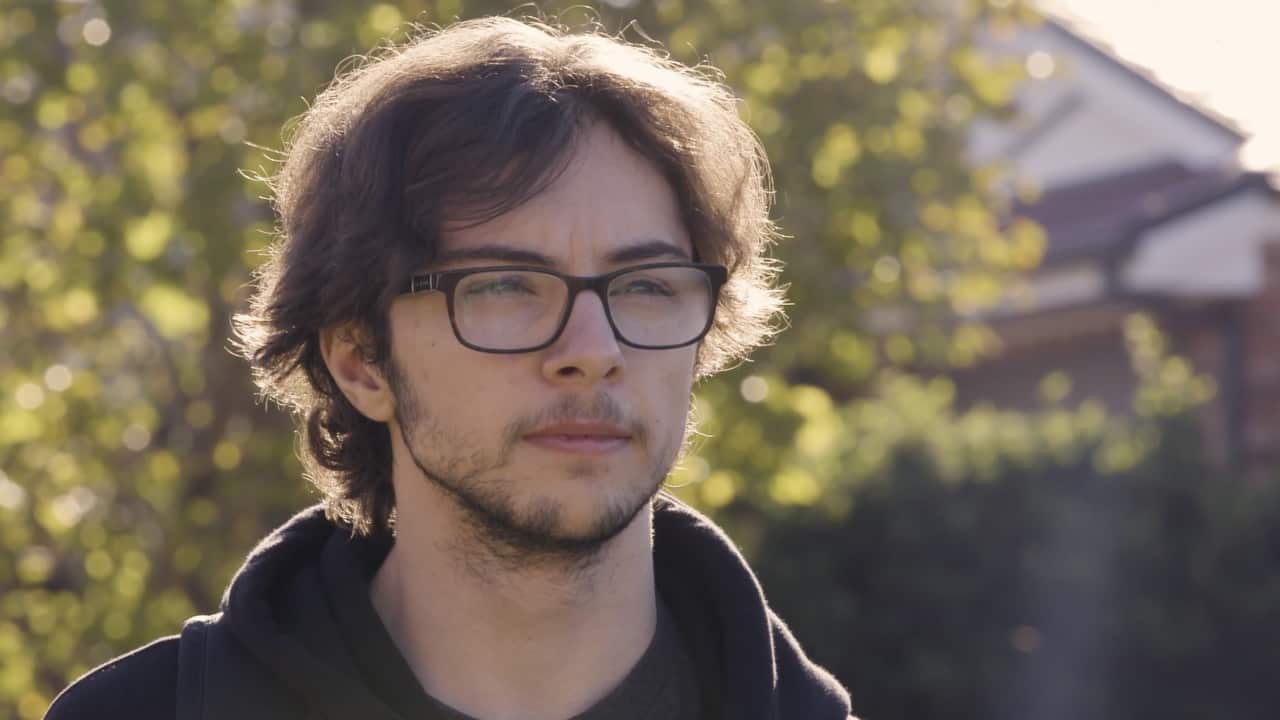Lili Higgins was prescribed opioids nearly eight months ago to minimise the pain she has from Crohn's disease.
She never thought she’d become dependent.
The 23-year-old was prescribed two types of medicines containing opioids for pain relief; Targin and Palexia.
She said Targin is a slow release pill she’d take every 12 or 24 hours whereas Palexia is a quicker release pill she would take when needed.

Lili has been living with Crohn's disease her entire life.
“I was completely not myself for two weeks,” she told The Feed.
“After the first day or two I was craving them to feel normal again, then it got to maybe day three, day four I was starting to become very agitated and angry.
“It put a lot of strain on my relationships. I live with my mum and I was taking a lot of anger out on her.
“I was waking up in pools of sweat”.
Crohn's disease is a bowel disease that causes swelling and inflammation in the digestive system. Its symptoms include chronic pain, diarrhoea and rapid weight loss.
Lili managed to push through the withdrawals but recently she’s had another flare up that's required her to go back on the medications.
“It was probably disappointing more than anything, because I felt like I'd worked really hard to get off them, “ she said.
“I am dependent again but I’m working with my doctors to eventually come off them.”

Lili has been prescribed pain killers containing opioids for her chronic illness.
“I’ll be on the couch all day experiencing a 10/10 level of pain. It’s really upsetting to think about.”
Lili has posted many videos to TikTok detailing her struggle with opioid dependency. Some have been viewed hundreds of thousands of times.
She said she’s received lots of messages of support as well as people reaching out to share similar stories. One user said, “Girl I‘m in your exact position, back up to my high doses after my last admission. Its so disheartening.”
Another wrote, “You’re the only reason I weaned off, I never thought I’d be able to until I saw your vids sis."
Lili has been flagged in the system due to the amount of time she's has been prescribed opioids and she said it made her feel like a “druggo”.
Each state and territory in Australia has a real-time prescription monitoring service which allows pharmacists and doctors to access a patient's prescription history and can identify when people are getting opioids from different medical professionals in close succession.
She needed to have a consultation with her GP about her dosage and discuss all the details around her use.
The dangers of opioids
Pharmaceutical opioids accounted for 2669 deaths in Australia between 2016 and 2020, more than heroin (2124).
And in 2021, opioids accounted for 962 of the 1704 drug-induced deaths in that year - more than any other drug class.
Around 14 million opioid scripts were dispensed to three million Australians in 2020-21, according to the Australian Institute of Health and Welfare .
There has also been a rise in the number of young people seeking pharmacotherapy treatment for opioid addiction.

Over the last five years more people under 30 have been seeking treatment for opioid addiction.
However pharmacotherapy is in higher demand for people aged in their 30s, 40s, 50s and 60+.
What are opioids?
Opioids are derived from a natural substance found in the poppy plant. In a medical context they are prescribed almost exclusively for pain relief.
Some of these include codeine, tramadol, oxycontin, fentanyl and morphine, heroin is also an opioid.
Dr Nick Carr is a GP in the Melbourne suburb of St Kilda. For over 30 years he has taught doctors about safe prescribing of addictive medications like opioids.
He said opioids are addictive because they bind strongly to receptors in the brain.

Dr Nick Carr is calling on medical professionals to take more responsibility in not initiating and perpetrating Australia's opioid problem. Source: Supplied
“They are dangerous (in high doses) because they suppress the respiratory system so if you take too much of these things you just stop breathing.”
He said more needs to be done to alert patients to the potential dangers of opioids.
“My own son, who is a late teenager, recently came out of a wisdom teeth surgery clutching a packet of twenty Endone tablets, a very potent opioid, without any proper advice or instruction about their use,” he said.
“And crucially with no advice about what the potential risks were and the potential for addiction.”
There is a system in place to monitor how much prescription medicine a person is buying.
Despite the system that tracks how much prescription medicine a person is buying, Dr Carr said he is most concerned about the doctors he calls “reckless prescribers” who will prescribe anyone who asks for opioids.
“Authorities have been toothless in dealing with it, so I think we as the medical profession have to take much more responsibility at not initiating and perpetuating the problem.”
He said it’s important not to demonise opioids as there are people with chronic conditions who need to take them.
“It's like every medicine in our cabinets: they're not all bad, and they're not all good.
“We certainly shouldn't be saying ‘no one should be on opioids’, that would be a great disservice to people out there who need them.”
Living with a chronic illness
There's no suggestion Lili has been recklessly prescribed opioids.
She said she’s used opioids many times when she’s been hospitalised for her Crohn’s and without them she would be in a lot of pain.

Lili has been hospitalised many times due to her Crohn's disease. Source: Supplied
Lili says Crohn’s can be a very “embarrassing disease to have '' and there have been times when she’s been incontinent in public and her friends have had to discreetly help her find a bathroom.

Lili said her friends have been very supportive and helped her out when dealing with the symptoms of her Crohn's disease. Source: Supplied
For Lili to get off opioids she needs her Crohn’s to be in remission and not flaring up, which involves taking her prescribed medication, eating the right foods and avoiding stress.
Otherwise she will need to get surgery to remove part of her digestive tract and live the rest of her life with an ileostomy bag.
“It's a long road. But if I can get to remission without surgery, then that'll probably be my biggest achievement in my life,” she said.
“And I'm really determined to get there.”




